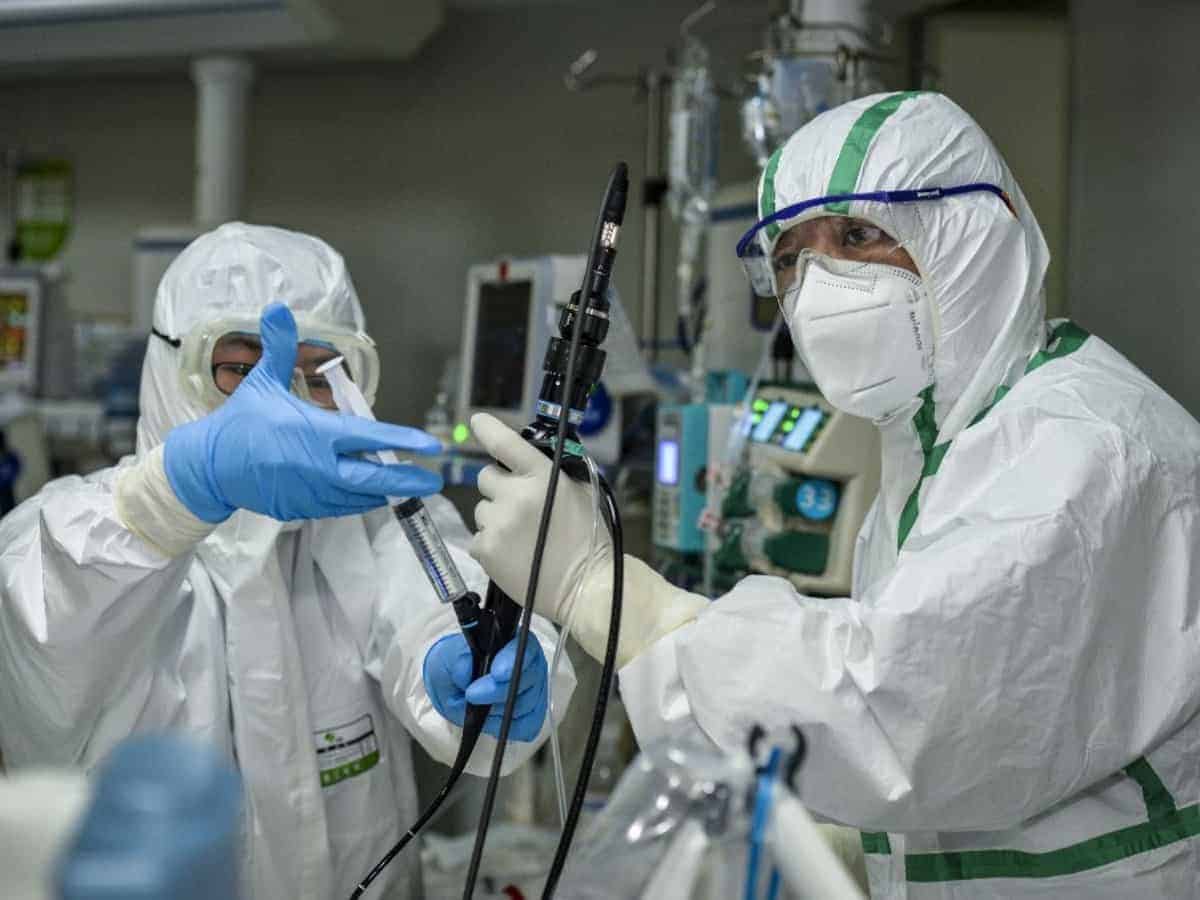New Delhi: AIIMS-Delhi Director Dr Randeep Guleria on Thursday said if aggressive efforts are made with concerted focus on COVID-19 hotspots areas and people understand their responsibility, then the positive cases will slowly come down and a peak in cases might not come.
Dr Guleria had earlier said that according to modeling data and the way cases are increasing, it is likely that peak can come in June and July but there were many variables and it will known in time how much they are effective as also the effect of lockdown extension.
Speaking to ANI on his remarks, Dr Guleria said, “If we see our situation today and the situation that were there six weeks or two months ago, our rate of rise in not that much as compared to other countries. Although cases are increasing, their doubling time is not that much.”
“Secondly, the cases have increased because we are doing more testing. In the beginning, we are only doing 4,000-5,000 tests. Now we are doing more than 80,000-90,000 tests daily. If more tests will be done, then there will be more cases and if we see their ratio then it is not big, it is the same which was earlier. Therefore, the positivity rate is same (which was earlier),” he added.
However, he said it is true that cases are increasing and “we would want the cases to come down”.
“That is not happening now,” he said and added that on this basis many national and international groups have done modelling that if the cases will continue to rise then till May end, June, July or August peak may come.
“This can also happen that if we work aggressively, altogether focus on hotspots, and people understand their responsibilities, then the cases will slowly come down and the peak starts to decline automatically or even peak might not come,” he said.
“For this, everybody’s participation is necessary because the chain of spread can be contained if everybody understands their responsibilities like social distancing and hand washing so that the virus does not spread further,” he added.
Dr Guleria said it is important to understand that when the lockdown is lifted, the citizens understand their responsibility.
“If we will be able to do all this, then the peak might not come and slowly the cases will come down. But if we will not do this, then cases will increase and it will put a strain on health infrastructure,” he said.
He also mentioned people have to carry on with wearing masks, social distancing, hand washing and not visit crowded areas for a long time.
“The cases are mostly increasing in hotspot areas,” he said, adding that aggressive planning in hotspots will help lower down the cases.
He said keeping in mind the health of non-COVID patients, AIIMS is planning to resume OPD services in a limited manner.

